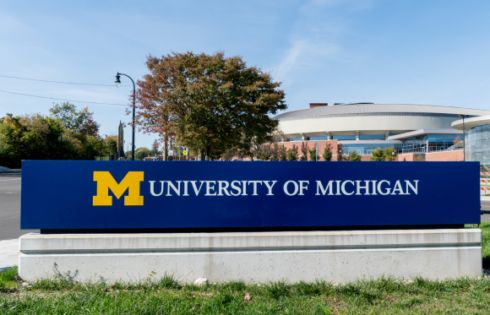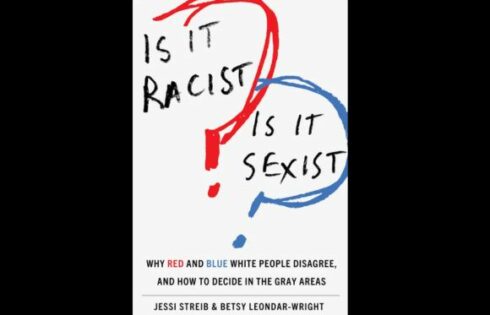
University of Michigan training session used ‘Privileged Identity Exploration Model’
A two-day professional development conference held recently at the University of Michigan included a training session that aimed to help white employees deal with their “whiteness” so they could become better equipped to fight for social justice causes, according to organizers.
Participants who took part in the “Conversations on Whiteness” session, held December 5 during the university’s Student Life Professional Development Conference, were taught to “recognize the difficulties they face when talking about social justice issues related to their White identity, explore this discomfort, and devise ways to work through it,” the university’s website states.
The goal was to help participants in “unpacking Whiteness” to support students and staff with issues and efforts “related to identity and social justice,” the website added.
The “Conversations on Whiteness” session was one of more than a dozen workshops offered at the conference, held Dec. 4 and 5. The whiteness session utilized the “Privileged Identity Exploration Model” to help white participants explore the “discomfort” of their “white identity,” according to organizers.
First introduced in 2007 by University of Iowa professor Sherry Watt in a College Student Affairs Journal article, the model purports to be a method for understanding how people react to stimuli that alert them of the privilege they hold. The model is to be used by “facilitators” to “engage participants in discussions about diversity,” according to Watt.
Watt states there are eight defenses people use to avoid recognizing their privilege. Examples of defenses include “denial,” where someone simply refuses to admit their privilege, and “minimization,” where someone trivializes the impact of their privilege.
The College Fix reached out for comment to the three university staff members listed as facilitators of the event: Abby Priehs: associate director of residence education; Steve Bodei: associate director of Student Life Leadership Education; and Nick Smith: director of campus involvement.
When asked why the “unpacking Whiteness” event was created, and whether or not students at the University of Michigan had complained about the quality of racial discourse on campus, Smith responded: “This is an internal training for U-M Student Life staff.” A subsequent query to Smith was not returned.
Neither Priehs nor Bodei responded to phone calls from The Fix on Monday night.
The Student Life Professional Development Conference was based around the overall theme of “Identity, Wellness, & Work: Healthier, Happier, & More Efficient,” according to the University of Michigan’s student life website.
Additional sessions were titled “Building and Strengthening Your Assessment Muscles,” “Empower, Safety and You,” and “Making Meaning: the Role of Spirituality in Higher Education.”
Another session, titled “I Don’t Feel Safe Talking About Race,” was devoted to giving staff “tools to create a safer climate to promote dialogue around racial issues.” Meanwhile “The Intersection of Well-being, and Diversity, Equity, & Inclusion on Campus” workshop aimed to help Student Life staff “work towards wellness justice for all students on campus.”
The University of Michigan is not alone in holding trainings to help staff cope with “intersecting identities.”
American University hosted a training event earlier this year designed to help staff understand their own identities.
Among the research guides available online from the University of San Francisco, meanwhile, is a “White Privilege Resource Guide” that provides resources to help researchers deal with their various forms of privilege.
MORE: Stanford University course to study ‘abolishing whiteness’
MORE: University event highlights 14 ways ‘whiteness’ oppresses society
IMAGE: YouTube
Like The College Fix on Facebook / Follow us on Twitter






Please join the conversation about our stories on Facebook, Twitter, Instagram, Reddit, MeWe, Rumble, Gab, Minds and Gettr.